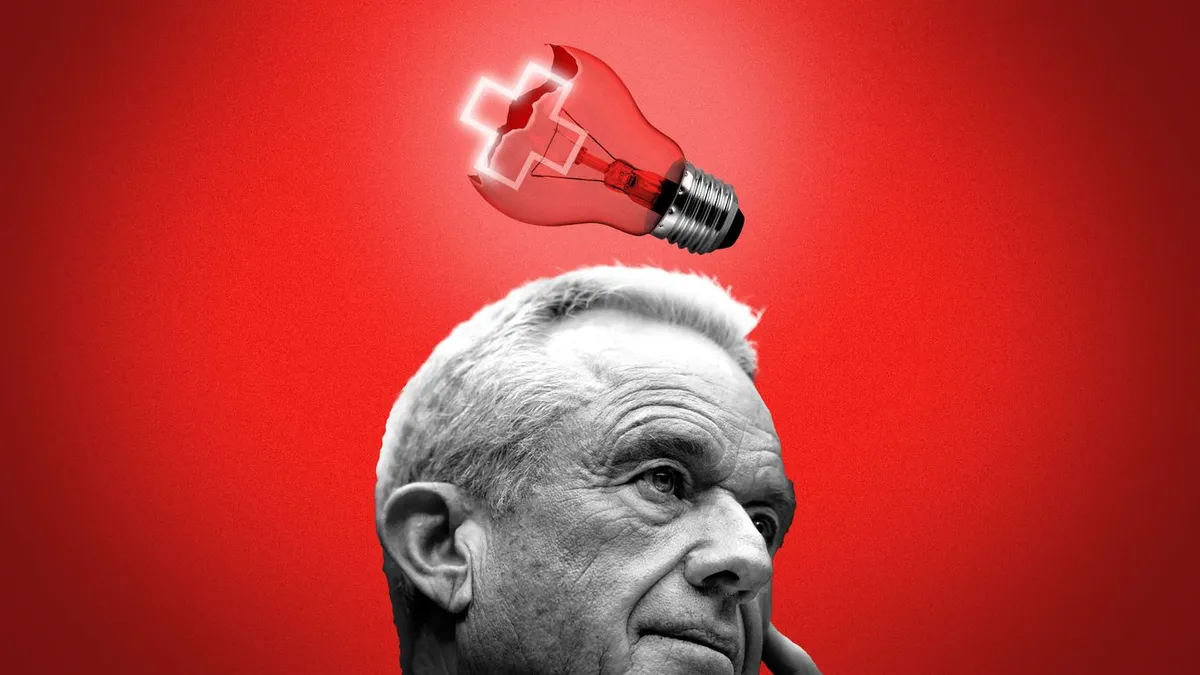
The recent decision by Health Secretary Robert F. Kennedy Jr. to cut federal funding for mRNA vaccine research marks a significant shift in U.S. health policy that could potentially hinder future medical breakthroughs and exacerbate the ongoing brain drain in the scientific community. This move raises important questions about America's role in global scientific innovation, which has historically driven economic growth, reinforced national security, and attracted international talent.
Historically, the United States has been at the forefront of scientific innovation. However, experts, including those who served in Trump's first administration, are voicing concerns that the U.S. is losing its competitive edge. Jerome Adams, the former surgeon general during Trump's presidency and now a professor at Purdue University, emphasized the gravity of the situation, stating that divesting from mRNA technology could stall progress in promising areas of modern medicine. "Walking away from this technology now would be like pulling funding from antibiotics after penicillin or from computers after the microchip," Adams warned, calling the decision shortsighted and damaging to the nation’s global standing.
Last week, Kennedy announced that the Department of Health and Human Services (HHS) would terminate nearly $500 million worth of contracts with universities, pharmaceutical companies, and laboratories engaged in mRNA vaccine development. He stated that no new mRNA-based projects would be initiated as the administration shifts focus to safer, broader vaccine platforms. This transition raises alarms among scientists who argue against the notion that mRNA vaccines are unsafe. The technology that enabled the rapid development of COVID-19 mRNA vaccines has been in progress for decades, supported by extensive scientific trials and real-world data demonstrating their safety and efficacy.
When questioned about the research informing Kennedy's decision, HHS provided a link to a collection of citations compiled by anti-COVID vaccine advocates, including Steven Hatfill, who previously promoted the use of hydroxychloroquine despite known safety issues. Cynthia Leifer, a professor of immunology at Cornell University, highlighted that mRNA technology was crucial for the expedited deployment of COVID-19 vaccines and is vital for responding to future viral pandemics. "When we have a pandemic, we need to act quickly. We don't have time to wait several years or decades to do testing of older platforms," Leifer explained.
Researchers are also exploring how mRNA technology could be used to treat or prevent chronic diseases like cancer and HIV, with promising early results. However, there are growing concerns that halting investments in this area could lead to missed opportunities for future cures. Adams warned, "If we stop now, we could delay or even miss the next generation of cures entirely.”
Scientists contend that Kennedy's other policy changes are also stifling innovation. His plans include implementing substantial staff cuts at HHS, reducing funding for research lab overheads, and terminating National Institutes of Health grants for a variety of projects. These cuts, combined with the broader immigration restrictions from the Trump administration, have already begun to drive promising international scientific talent away from the U.S.
Despite these concerns, HHS officials assert that the changes will not hinder medical advancements. HHS Communications Director Andrew Nixon stated, "Those concerns are unfounded and not supported with facts." He also noted that Kennedy's decision to cut funds for BARDA mRNA work would not affect other governmental applications involving the technology. The Centers for Disease Control and Prevention continues to endorse mRNA COVID vaccines for most adults.
An independent bipartisan commission warned Congress in April that China has already surpassed the U.S. in key life sciences sectors. The report suggests that the U.S. must invest significantly in biotechnology to maintain its dominance, emphasizing that time is of the essence.
As the implications of these policy changes unfold, it remains uncertain whether breakthroughs in medical research will be stifled and which advancements may be lost. Richard Besser, CEO of the Robert Wood Johnson Foundation, posed a critical question regarding the long-term impact: "What cure wasn't found? What question wasn't asked and investigated?" While mRNA therapy startups continue to attract private investment, which may sustain research efforts, the future of U.S. leadership in medical innovation hangs in the balance.
In conclusion, as the scientific community grapples with the ramifications of Kennedy's funding cuts, the potential for significant advancements in healthcare hangs precariously in the balance. The direction taken now will have lasting effects on the future of mRNA technology and broader medical research in the United States.